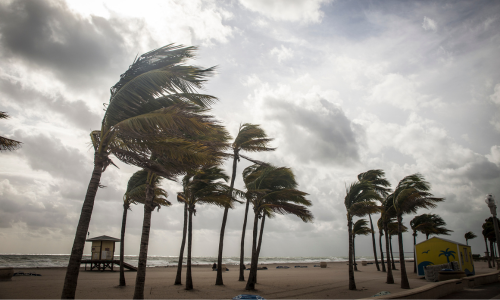IAALS' Disaster Protocols Provide Guidance amidst Chaos
 Last month, Hurricane Helene touched down in Florida, wreaking havoc across the southeast United States. It then weakened to a tropical storm and passed through Georgia, the Carolinas, and Tennessee, bringing strong winds, heavy rainfall, storm surge, and devastating floods that ravaged communities along the way. In places like Asheville, North Carolina—considered by many to be a “climate haven”—highways are destroyed, power lines are down, and people are struggling to find food, water, and electricity. Now, two weeks later, Hurricane Milton is headed toward Florida’s west coast, the first major hurricane to hit Tampa Bay in a century.
Last month, Hurricane Helene touched down in Florida, wreaking havoc across the southeast United States. It then weakened to a tropical storm and passed through Georgia, the Carolinas, and Tennessee, bringing strong winds, heavy rainfall, storm surge, and devastating floods that ravaged communities along the way. In places like Asheville, North Carolina—considered by many to be a “climate haven”—highways are destroyed, power lines are down, and people are struggling to find food, water, and electricity. Now, two weeks later, Hurricane Milton is headed toward Florida’s west coast, the first major hurricane to hit Tampa Bay in a century.
The harsh reality is that no place is immune to the impacts of climate change and its aftermath. It’s essential for communities to prepare for the challenges that follow natural disasters—including legal ones. From navigating insurance claims and resolving property disputes to addressing the needs of displaced individuals, these situations often lead to legal complexities that demand immediate attention. Vulnerable populations, already at a disadvantage, face even greater challenges in accessing justice during these crises.
IAALS’ Initial Discovery Protocols for First-Party Insurance Property Damage Cases Arising from Disasters are designed to ensure that the justice system remains functional and accessible even in the face of overwhelming circumstances. These protocols make it easier for the parties and their counsel to:
- Exchange important information and documents early in the case;
- Frame the issues to be resolved;
- Value the claims for possible early resolution; and
- Plan for more efficient and targeted subsequent formal discovery, if needed.
The growing legal challenges posed by climate change demand broader attention. As climate-related disasters become more frequent, they bring complex legal issues that span employment, debt, housing, and more—issues that can overwhelm both individuals and communities. According to HiiL’s policy brief on climate change and access to justice, vulnerable populations face particularly heightened barriers to justice in these situations. To ensure equitable access to legal resources, we must set our sights on tomorrow and anticipate the long-term impact of climate change on our justice system.
As communities across the southeast begin to recover from Hurricane Helene, it’s clear that the path forward will be long and complex—especially for those navigating the legal challenges that follow in the wake of disaster. IAALS’ Disaster Protocols help to ensure the justice system remains accessible and responsive during these difficult times.





